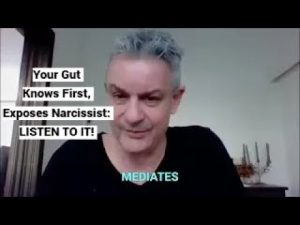- 1.1 1. Introduction and Credentials of Speaker
- 1.2 2. Criticism of Wikipedia as a Narcissistic Cult
- 1.3 3. Issues with Wikipedia’s Editorial Process and Community
- 1.4 4. Historical Context of Collaborative Editing
- 1.5 5. Wikipedia’s Problematic Governance and Editing Culture
- 1.6 6. Wikipedia and Knowledge Quality
- 1.7 7. Age and Competency of Wikipedia Contributors
- 1.8 8. Wikipedia as a Counterproductive Form of Knowledge Dissemination
- 1.9 9. Comparison with Other Encyclopedias and Projects
- 1.10 10. Wikipedia and Legal/Ethical Issues
- 1.11 11. Final Critique and Call for Accountability
Wikipedia: Narcissistic Cult, Cabal EXPOSED
1. Introduction and Credentials of Speaker
- Speaker Svaknin introduces himself as an authority in psychology and business management with multiple academic affiliations and editorial roles in scholarly journals. He establishes his credibility to critique Wikipedia. [00:00]
2. Criticism of Wikipedia as a Narcissistic Cult
- Wikipedia is described as the largest narcissistic cult with tens of millions of participants.
- Speaker criticizes Wikipedia’s transformation from Nupedia (peer-reviewed) to an unreliable crowdsourcing platform dominated by a small group of editors.
- Artificial Intelligence chatbots are noted to rely on Wikipedia content while simultaneously warning users of its unreliability. [01:10]
3. Issues with Wikipedia’s Editorial Process and Community
- Only 500 active editors make more than 100 edits per year, making Wikipedia not truly crowdsourced.
- Pseudonymity and anonymity encourage lack of accountability.
- Many editors have no credentials or expertise and openly admit editing topics unrelated to their background.
- The culture of Wikipedia is described as cult-like, with exclusionary barriers to entry controlled by a cabal. [02:40]
4. Historical Context of Collaborative Editing
- Collaborative models existed historically (e.g., Talmud, Oxford English Dictionary).
- Difference: traditional projects had appointed expert gatekeepers, Wikipedia does not.
- Wikipedia’s lack of gatekeepers severely damages its reliability. [06:20]
5. Wikipedia’s Problematic Governance and Editing Culture
- Wikipedia described as opaque, authoritarian, pseudodemocratic, and prone to editing wars.
- Authority is based on quantity of edits rather than quality.
- Editors may engage in hostile behavior to rise through ranks, leading to instability and vandalism.
- Wikipedia’s editorial process is secretive and manipulated by a small group of territorial editors. [08:00]
6. Wikipedia and Knowledge Quality
- STEM articles are relatively reliable, yet the majority (including biographies, politics, gender-related topics) are biased and questionable.
- Experts are discredited or excluded; expertise is undervalued.
- The platform’s “malignant egalitarianism” equates all contributors regardless of credentials.
- Information is presented without context or depth, largely consisting of factoids. [12:15]
7. Age and Competency of Wikipedia Contributors
- Most editors and administrators are under age 25, many in their teens.
- Teenagers lack research skills, life experience, and ability to distinguish valid sources, negatively impacting content quality.
- This youth dominance aligns with broader American cultural trends of valuing shortcuts and soundbites over deep scholarship. [15:45]
8. Wikipedia as a Counterproductive Form of Knowledge Dissemination
- Wikipedia commodifies knowledge and removes essential quality filters.
- It imposes procedural barriers to preserve power within its controlling group.
- Academics often prefer Wikipedia despite its inaccuracies, reflecting cultural differences in trust of authority.
- The platform retards genuine learning and encourages superficial research habits among students. [17:55]
9. Comparison with Other Encyclopedias and Projects
- Unlike Wikipedia, the Stanford Encyclopedia of Philosophy and Internet Encyclopedia of Philosophy combine expert authorship with public input, resulting in higher credibility.
- Encyclopedia Britannica also uses a curated crowdsourcing model.
- Other reliable projects exist but lack Wikipedia’s overwhelming PR and user base. [21:30]
10. Wikipedia and Legal/Ethical Issues
- Wikipedia is a hub for libel, slander, and copyright violations.
- Political, commercial, and special interest groups manipulate Wikipedia articles.
- Plagiarism is reportedly present, with works copied without proper attribution.
- Wikipedia provides little effective legal redress and favors administrators in disputes.
- Despite claims of being a free-for-all, Wikipedia is tightly controlled behind the scenes by a small group of editors, raising questions about legal liability and possible lawsuits. [23:45]
11. Final Critique and Call for Accountability
- Wikipedia is described as an edited publication with real editorial power concentrated in a few hands.
- Calls are made to revoke Wikipedia’s tax-exempt status or to enforce greater responsibility and transparency.
- The platform’s current model is detrimental to truthfulness and intellectual integrity.
- Speaker concludes that only financial and legal pressures could force Wikipedia to adopt minimal standards of truthfulness and responsibility expected of other media outlets. [28:20]






